Male spiders pull webs to seek out female spiders and chase them. After mating, a female spider lays one or more egg sacs in her web. The question is, when do the spider eggs in the garden hatch? If you're looking for answers, you're on the right page! We've collected enough information for this question.
Offspring are born in late summer or autumn. If they live in cold winter climates, baby spiders may rest in egg sacs and hatch in the spring. Wasps and flies actively parasitize eggshells.
If you want to know more, keep on reading. This post discusses more on the characteristics and benefits of garden spiders. Enjoy!
Benefits Of Garden Spiders
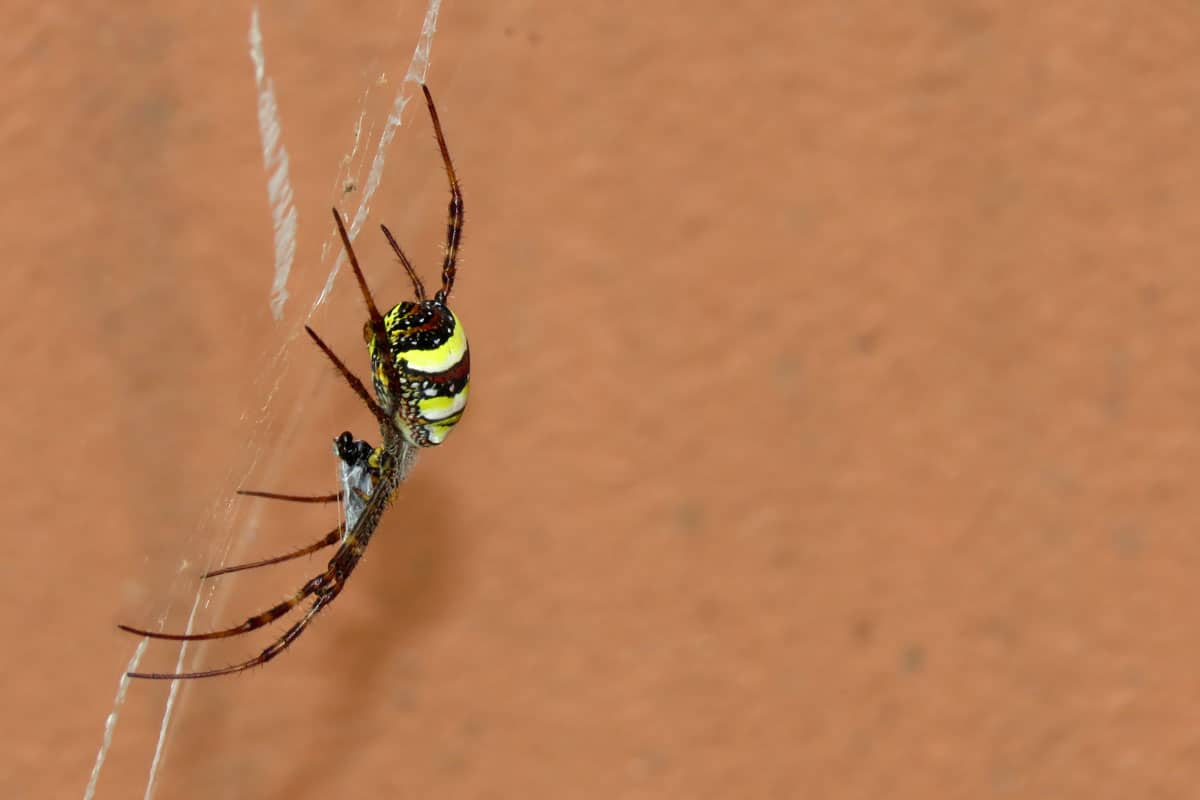
Most of the garden spiders you see are black and yellow, but there are many different types of garden spiders as well. You can eliminate it and let the good ones do the work.
Usually, on sunny days, garden spiders spin their webs, and plants attach to them. They mate in late summer or early fall and breed once or twice a year.
Female garden spiders lay hundreds to thousands of eggs in silky brown spherical cocoons 1 inch in diameter. They hatch in spring or fall, and the larvae either stay in the area or are blown elsewhere by the wind. Most of these do not survive until adulthood.
Even after hatching, young spiders do not leave the cocoon until the following spring. Unfortunately, these helpless spiders are preyed upon by parasites and predators.
Birds prey on them, so they rarely survive the winter and are even less likely to become adults the following season. Every year, one generation is born. Garden spiders also have their benefits. These benefits are:
1. They Eat Insects
The biggest advantage of spiders is preying on other insects. They reduce the number of flies, mosquitoes, moths, beetles, and other insects.
This prevents you from being attacked or stung while gardening and reduces the number of hungry insects nearby.
2. Seasonal Early Control
Spiders start pest control when insects arrive. Adult spiders often overwinter in gardens. When it warms up, it comes out ready to eat.
This means you can enjoy the benefits of free pest control in your garden without waiting for the eggs to hatch and the offspring to mature.
3. Lesser Use Of Pesticide
Allowing spiders to take care of some of your garden's pests will reduce your need for chemicals in your garden. The fewer pesticides you use in your garden, the less likely you are to use them.
Characteristics Of Garden Spiders
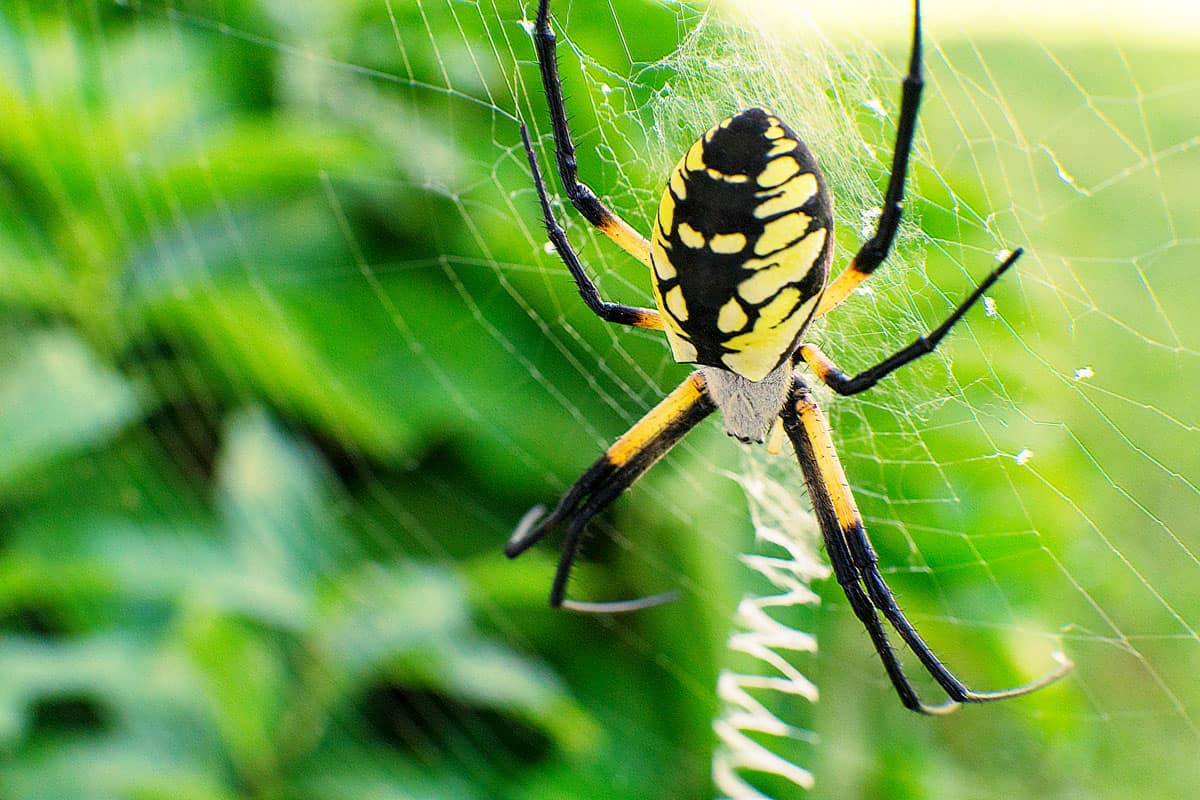
Depending on the species, male and female spiders are different. You may be able to spot the differences between them. These are the characteristics of garden spiders:
Description
Females have black bellies with symmetrical stripes and bright yellow spots. Their legs are tricolored, reddish brown or orange at the base, and the limbs are black with whitish beige bands above and below one or more joints.
They have longer than 1-inch bodies, while males are smaller. The third set of legs is roughly half the length of the previous legs.
Males have golden-yellow abdomens and darker legs. When resting on their nests, these spiders usually pair their legs to form an X.
Food
These garden spiders eat flying insects, including mosquitoes, grasshoppers, wasps, bees, moths, and butterflies. They have also been known to consume hummingbirds or frogs that trap in their webs.
Size
Male garden spiders are about one-third to one-fourth the size of female spiders. It reaches about 0.35 inches or 35 mm in diameter. Female garden spiders have large, fat abdomens and can grow over an inch. It can reach 1.1 inches in diameter, not including legs.
Living Quarters
Male garden spider is not only substantially smaller than females, but their webs are also a lot smaller. Their webs are much smaller and are found near or even within the larger structures of female webs.
Female webs are larger, over 2 feet in diameter. Male spiders sometimes have a small web along their edges.
Attracting Garden Spiders
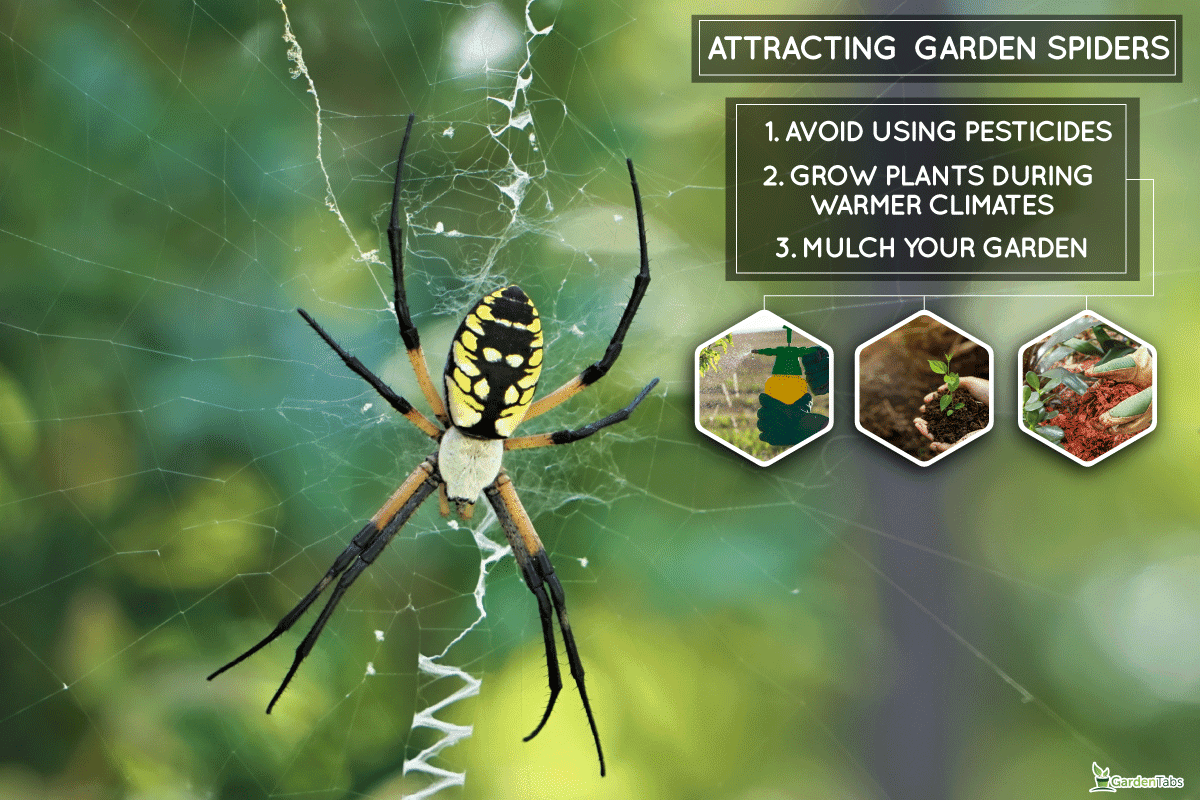
Many garden spiders thrive in healthy gardens filled with leafy shrubs and perennials. Wolf spiders are especially attracted to cut grass used as mulch.
Wolf spiders don't have the distinctive yellow and black markings of true garden spiders, but they provide the same benefits to the garden and are more aggressive.
These hunters search for prey rather than weaving webs and waiting for it to come to them. Grass cuttings provide a hunting environment for them. But there are other things you can do to attract more garden spiders:
1. Avoid Using Pesticides
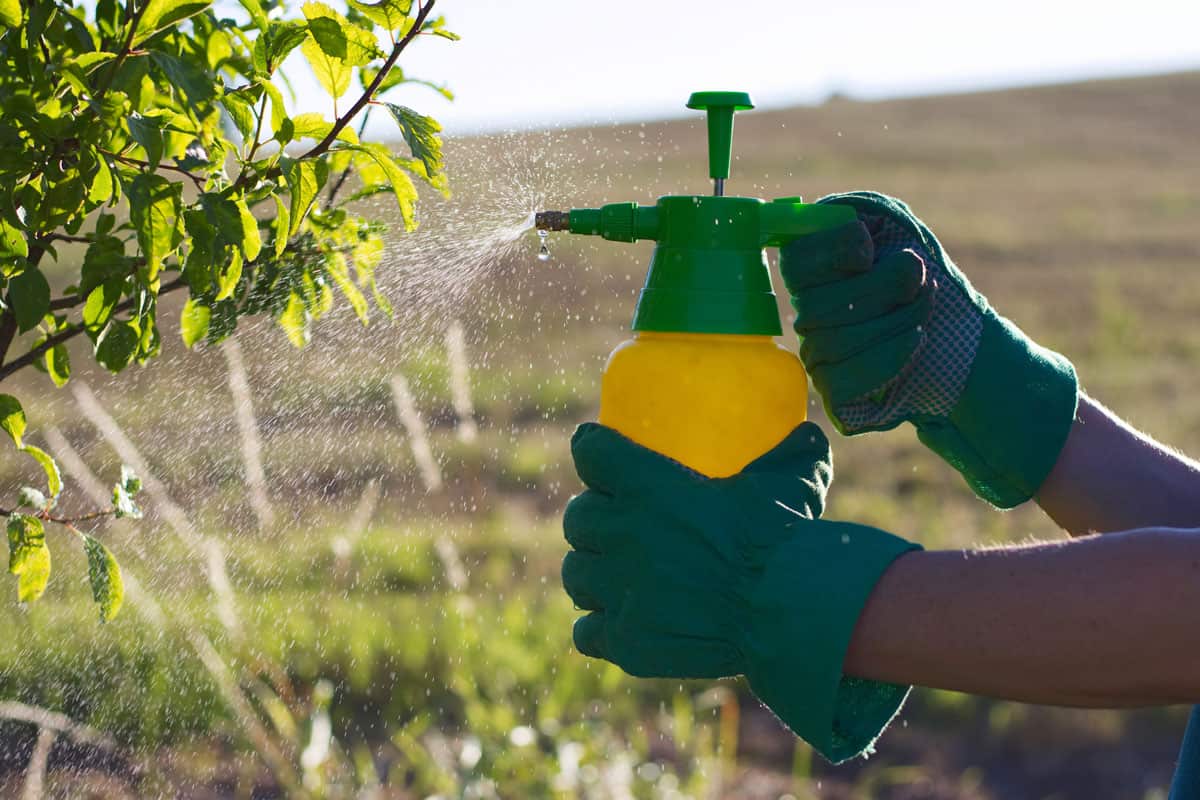
Even if you try, you won't make much progress in fighting spiders. However, pesticides harm insects and beneficial insects such as bees and butterflies, so it makes sense not to use them.
When people hear the word "pesticide," they think of insecticides. However, pesticides also include biocides such as fungicides, herbicides, and insecticides that kill non-target animals such as spiders.
2. Grow Plants During Warmer Climates

The simplest strategy for protecting food crops is to create a variety of flower assortments with different flowering times to cover as much of the growing season as possible.
Some spiders consume nectar in addition to their insect-based diet. Some plants are beautiful to spiders with their extra-flower nectar as a defense against pests.
3. Mulch Your Garden
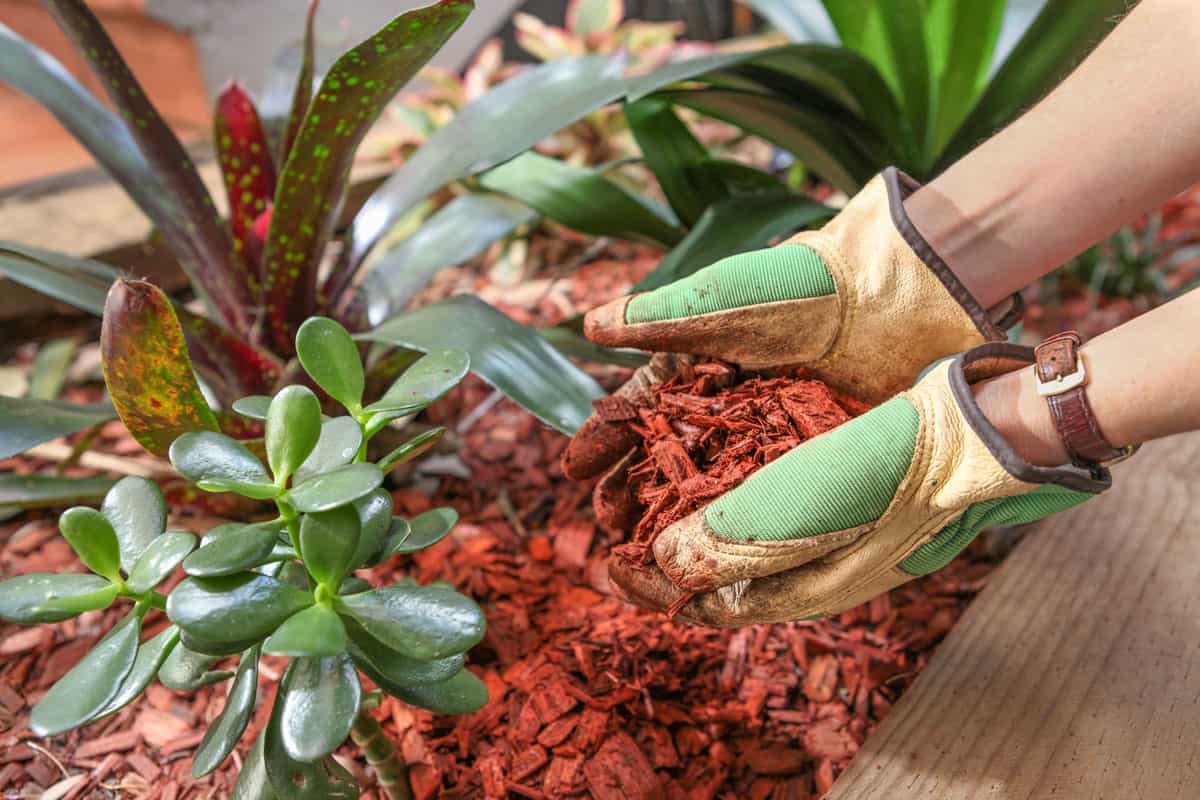
Another great way to increase spider habitat is to spread mulch. Mulch helps retain moisture in the soil and also helps control weeds.
Natural mulch that resembles the forest floor, such as straw or garden waste, encourages the growth of organisms that prefer that habitat. Mulch helps young spiders of some species of spiders survive the winter and not freeze to death.
Are Garden Spiders Considered Poisonous?
Garden spiders are considered venomous, not poisonous. Their venom is toxic enough to immobilize a victim, but it is scarce to harm healthy humans.
The spider's venom begins to pre-digest the bug's inside, eventually liquefying completely and faralyzing it.
What Is The Lifespan Of A Garden Spider?
The average lifespan of a garden spider is one year. Some female spiders can live for several years in locations with strong frost climates.
They usually live in one location for the rest of their lives. You may want to check your garden for garden spiders!
Why Do Female Spiders Prey On Male Spiders?
Females of various species of spiders consume males after breeding in a cruel ritual known as sexual cannibalism. Differences in body size between male and female spiders usually give females a greater physical advantage.
What Causes Spiders To Fight?
Male spiders fight to protect their females. Males nest near their treasures just when they are ready to reach reproductive age. By repelling potential suitors, he can increase his chances of successfully procreating.
Are Garden Spiders Aggressive?
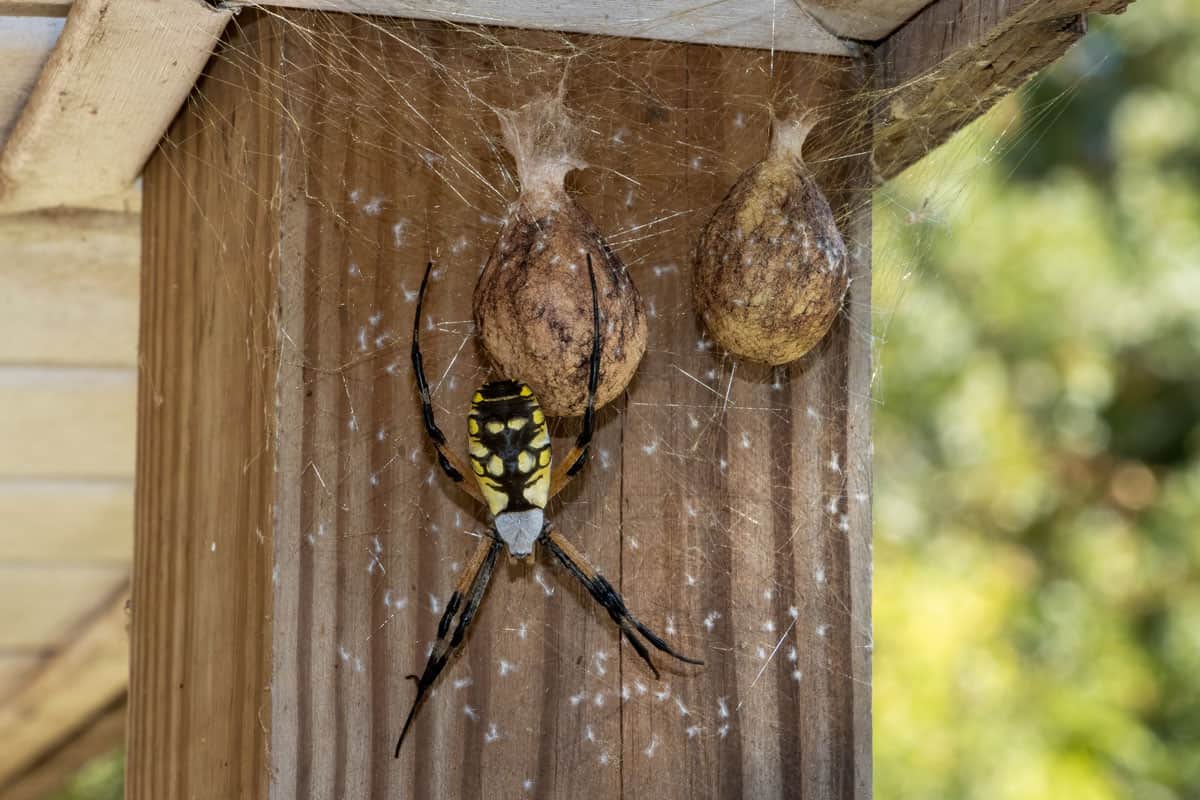
These spiders are not hostile to humans but will bite if threatened. A female will likely inject venom into you if you grasp her close to her egg sac. For example, exactly as she would do to animals caught in her web but with far less deadly results.
A yellow garden spider bite resembles a bee sting or mosquito bite to most people. The damage is minor – a little itching, redness, and swelling.
What To Do If A Spider Bites You
Like any small wound, wash bites with water and soap. Using a cold compress to lift the affected area can help relieve any stinging, itching, or swelling that may be present.
Antihistamines such as Benadryl and over-the-counter pain relievers such as Tylenol also help. Seek medical attention if the bite appears to be infected or if more serious symptoms develop.
Check out this ultratabs antihistamine on Amazon.
Check out these strength tablets on Amazon.
In Closing
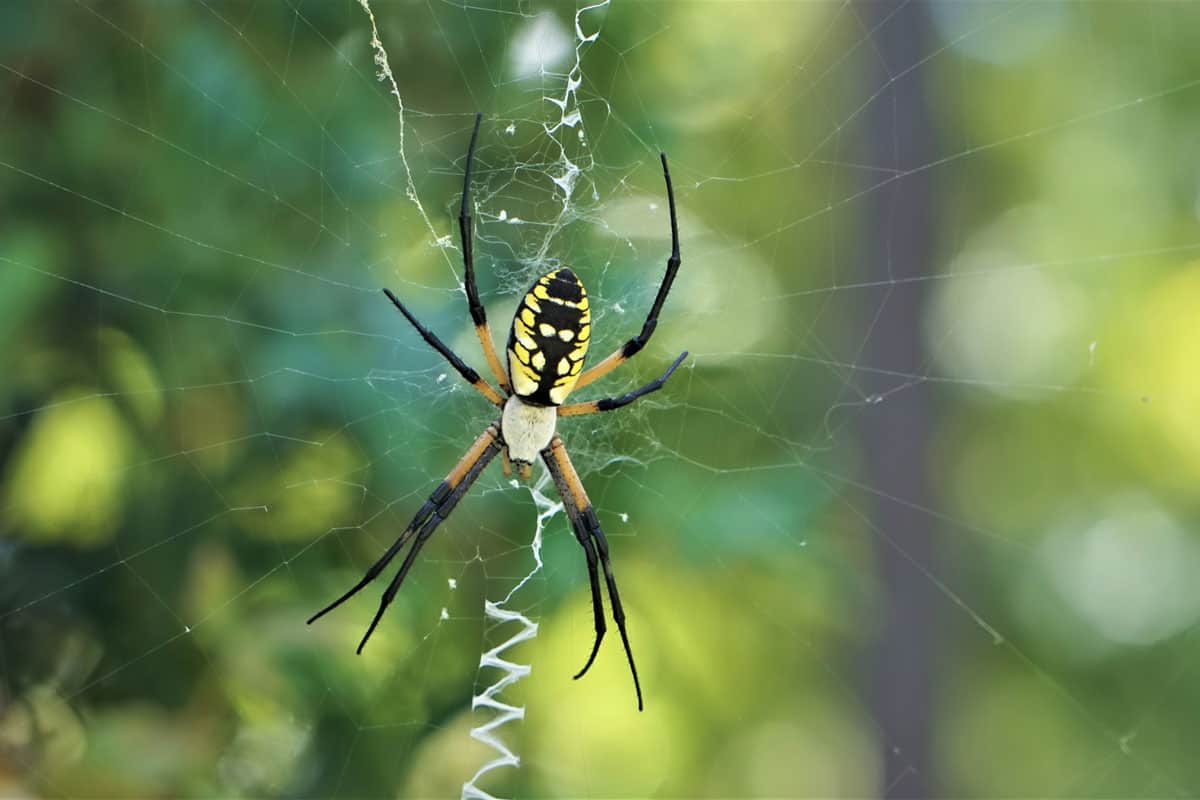
To some people, spiders in the garden are considered a nuisance. But they are beneficial to most homeowners. They keep your plants healthy and prevent insects from staying near your garden.
Their eggs usually hatch in spring or autumn. Allowing them to stay in your garden can give off a lot of benefits when they hatch.
We hope that we helped you answer your question. Before you go, check out these other related posts:


